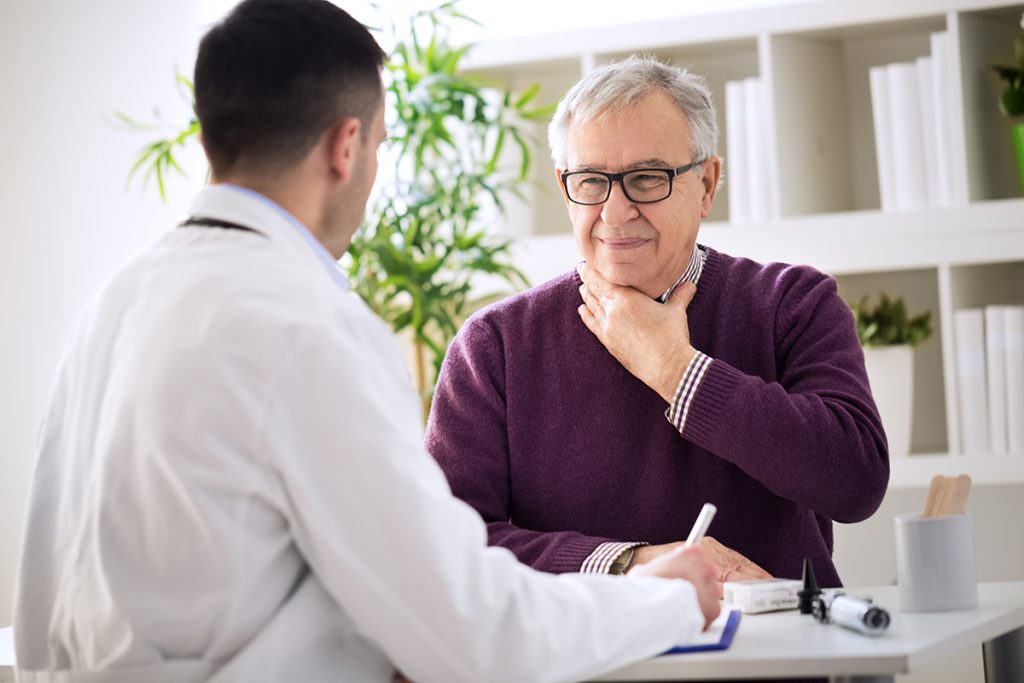
Now Enrolling: Clinical trial EA2174 is evaluating a new treatment approach for patients with esophagus cancer
March 3, 2021
Trial Results: ECOG-ACRIN research round-up – Spring 2021
June 24, 2021COVID-19 and Clinical Trials: Continuing Care in a Pandemic

Of all the things the COVID-19 pandemic has disrupted, health care may be the most critical. People around the world have cancelled or postponed countless doctor’s appointments—both routine and urgent—for fear of COVID-19 infection. When it comes to cancer, the consequences of this trend may be significant. Cancer does not stop for COVID, and neither should cancer screening or treatment.
“We are concerned at what is projected to be an increase in cancer mortality as a consequence of patients getting less standard health care in the past year,” said Peter O’Dwyer, MD (University of Pennsylvania), co-chair of ECOG-ACRIN Cancer Research Group. “For patients with symptoms, new cancers will be diagnosed later and so may have progressed to an incurable stage; an even greater concern is for those without symptoms, whose new cancers would have been detected by standard screening tests.”
Health care professionals have been working hard over the past year to ensure visits are as safe as possible, so patients feel comfortable receiving care. Providers use special policies and procedures, such as offering telemedicine and enforcing social distancing and occupancy limits for in-person appointments. Thanks to these efforts, clinical trials remain open and enrolling throughout the pandemic. Because clinical trials are sometimes the best—or only—option for patients, pausing them was simply not a possibility.
Researchers make adjustments to help clinical trials be more COVID-friendly. In many cases, patients can give their consent to participate remotely, via telephone or videoconference, rather than in-person. Some studies allow participants to have testing, like bloodwork, done locally rather than requiring them to travel. And, as mentioned above, telemedicine is available for many patients in clinical trials.
There are signs that people are becoming more confident resuming their usual care. ECOG-ACRIN’s TMIST breast cancer screening study saw a decline in enrollment in the summer and early fall of 2020, but has since regained momentum. In fact, January was the fourth month in a row that over 1800 patients joined the study. This number is even higher than the highest pre-COVID monthly enrollment record.
Keeping up with cancer screening, like mammography or colonoscopy, is particularly important, as the earlier cancer is detected, the more effective treatment is likely to be.
“As the negative impact of deferred screening is recognized, health care providers have restored their screening programs,” said Mitchell Schnall, MD, PhD (University of Pennsylvania), co-chair of ECOG-ACRIN. “With more experience operating in the COVID era, providers have more confidence they can offer these services in a safe environment. Additionally, improved preventative measures and increased vaccination efforts are keeping health care staff healthy, so they can better serve patients.”
As COVID vaccines become more widely available, and life slowly inches back to “normal,” all those who have cancer or are at risk of developing the disease can rest assured research is continuing throughout the pandemic. Though there will be some long-term effects, progress against cancer continues. Clinical trials are open and remain an option for those looking to make a difference for future patients.

